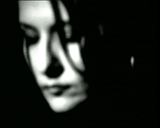
 Author of all texts
about mythology on
these web-pages is
Lidija Bajuk:
Author of all texts
about mythology on
these web-pages is
Lidija Bajuk:
|
lidija.bajuk@posluh.hr
scena.hgu.hr/lidija-bajuk/
- The Sky
- The Mountain
2. PERUNIKA
- Leluya
- Ball lightning
3. AQUARIUS
- Candlemen
WATER MAID
- Fairies
- Witches
4. DRAGON
- Water
SNAKE
- Bogorodica
(Rainbow)
5. GREEN GEORGE
- The Moon
- Corn Spirit
6. LEPA MARA
- Hair
- Embroidery
7. GRABANCIJAŠ
- Light
8. PESJANEK
- Forest
9. LITTLE RED HAT
(DWARF)
- The Cap, Little Hat
10. STRAHE & MRAKI
(GIANTS)
|
PERUNIKA
(PERUNKA, PER(K)UNOVA, PERENA, L(J)EL(J)UJA, LJELJA, GORKA, VERONIKA, OGNJENA MARIJA (Fairy Mary))
|
|
Thus, it is not surprising that Gromovnik (God of Thunder) Perun, helped by his wife, ''loads'' the thunderbolts and shoots them at thieves, liars, and unmoral people in general. This is a transformation of fertile ''tools'' into deadly ''weapons'' (destructive thunders or dragon's fire that creates droughts). In this context, it sounds logical that Perun's female companion punishes unmoral and dishonest women by the ''white plague'' (sterility). Another incarnation of this goddess is a woodpecker, a bird that announces an upcoming storm. Under the people's fear of Perun's and Perunika's revenge, and also under the influence of the new religion, the human imagination has transformed this divine couple into its reverse side: horrible monsters, e.g. a dragon and snake, some of them becoming separate mythical creatures. |